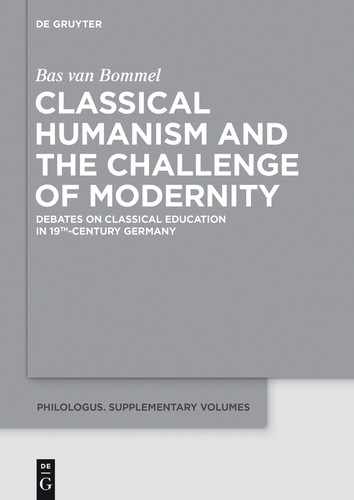Table of Contents
Part I: The Persistence of Classical Humanism
Part II: The Adaptability of Classical Humanism
2. The Challenge of the Bürgerschule
..................Content has been hidden....................
You can't read the all page of ebook, please click here login for view all page.
